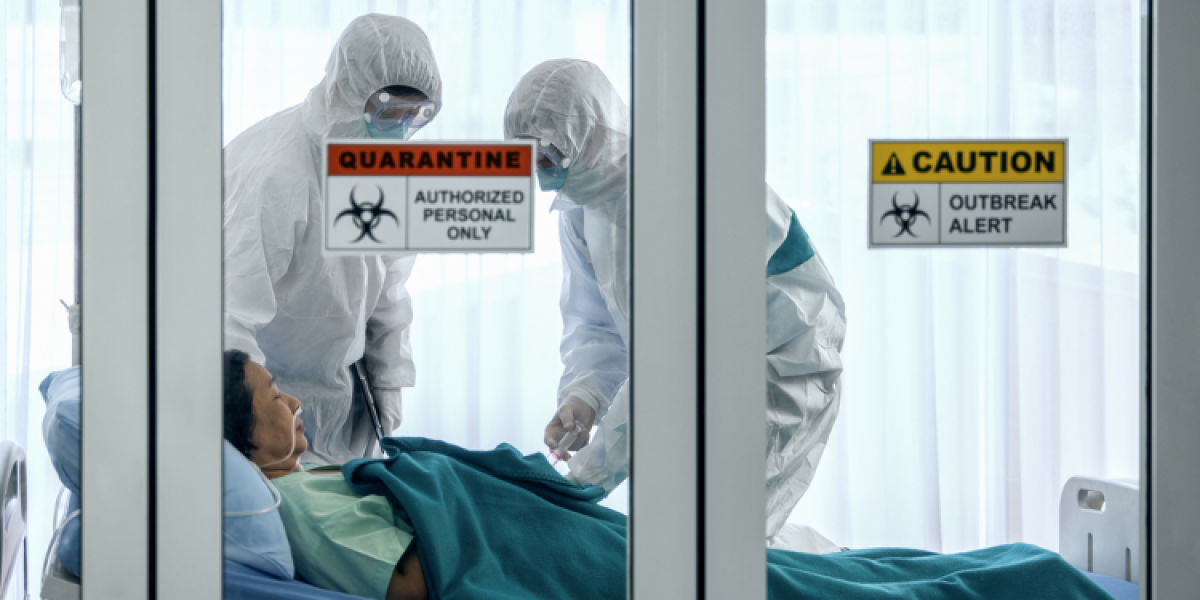
Can I claim health insurance as an expat if I'm contaminated by the COVID-19 abroad? If so, what are the conditions applied? As the coronavirus pandemic spreads around the globe, health insurance is increasingly a matter of concern for millions of expats, especially since some of the world's best healthcare systems are crumbling down with a daily rise in the number of positive cases.
The coronavirus pandemic comes as a test for health systems all around the world. Countries like the United Kingdom and the United States have been experiencing real chaos for the past three months, and it's not likely to end anytime soon, unfortunately. With overcrowded hospitals lacking equipment and staff, what should you do in case of contamination? How does expat health insurance work when there is a pandemic?
How international health insurance works with COVID-19
Global insurers like AXA Global Healthcare and BUPA Global have already reassured their clients that medical coverage applies to the coronavirus pandemic as for any other medical emergency. However, make sure your insurance policy includes out-patient coverage before making any claims. If you are having coronavirus symptoms, you should first call your insurer, which will redirect you to its Virtual Doctor Service, either by phone or video call.
On its website, Bupa Global indicates that the situation is being closely monitored and that any member having symptoms similar to COVID-19 or who has been contaminated will be fully taken care of, throughout the entire pandemic. Coverage includes the cost of hospitalisation and medication. Also, claims will be treated normally, without requiring diagnosis or prior COVID-19 treatment.
What if I have to travel urgently?
There is no reason to panic. In general, your international health insurance generally includes numerous routine medical examinations, so you can get a test done. However, make sure to check beforehand with your insurer.
To support its members, Allianz Global recently announced temporary coverage for medical claims and cancellations that are usually not covered. Thus, people travelling to China, South Korea, as well as to the most affected regions of Italy, can make their claims if they require healthcare or if they choose to cancel their flight -- for a limited period.
Vulnerable health systems
Despite having one of the world's best-performing health systems, the United Kingdom has been severely affected by the COVID-19 outbreak -- the number of positive cases rising above the 15,000-mark this week. The British government is considering all possible ways to guarantee adequate treatment, including close collaboration between the National Health Service (NHS) and independent hospitals. Under this agreement, care provided to COVID-19 patients by independent hospitals will be fully taken care of. Given the increasing demand at the NHS level, special attention is given to the most vulnerable.
Meanwhile, a big question arises for thousands of Americans in the UK, half of whom do not have health insurance provided by their employer. According to the British media, the cost of treatment for COVID-19 can rise up to $ 35,000 -- which is totally out of reach for those who don't have health insurance. Also, taking into account the current volatility of the labour market due to the health crisis, there is a risk that many are going to lose their job in coming days or weeks -- which is going to make matters worse.
In the USA, many insurers have received clear instructions from the federal government: coverage should be provided for all medical visits related to COVID-19, including virtual consultations. However, only a few insurance companies are providing full coverage of treatment costs. Therefore, COVID-19 patients in the USA might find it hard to afford treatment.
Meanwhile, Italy is taking significant measures to ensure continuity of free health services amidst the chaos. Around 3.5 billion euros have been invested to increase the capacity of the health system. This includes the expansion of intensive care units, acquisition of protective equipment and new ventilation systems, as well as the recruitment of 5,000 new doctors and 15,000 nurses and medical staff.



















